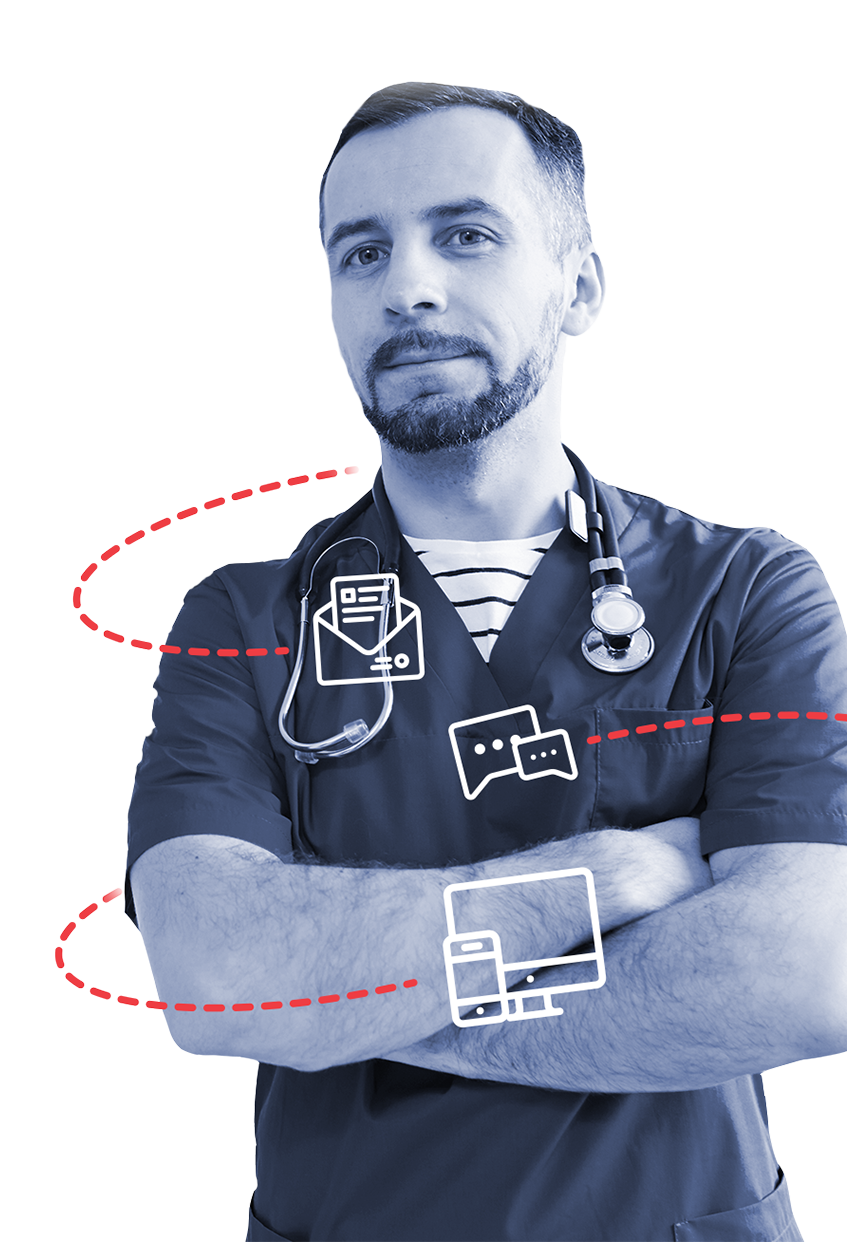What is Salesforce Health Cloud?
In a nutshell, Salesforce Health Cloud builds on the core Salesforce CRM and Service Cloud with features designed exclusively for patients, healthcare providers, and payers. It offers a 360-degree view of the patient, streamlines processes through automating health care data, and helps connect both providers and patients – this is the main difference of Health Cloud vs Service Cloud.
Let’s dive into some ways Salesforce Health Cloud can help improve the patient and provider experience in your healthcare organization.
Manage Patients’ Interactions All on One System
From allowing a caregiver to easily record activities that a patient has completed, to displaying existing appointments to a customer service representative, Health Cloud manages a patient’s interactions rather than their chart. Even better for providers and support staff? Health Cloud helps streamline workflows by keeping all records in one system and one spot. No more toggling between platforms to find patient information. Instead, you can customize dashboards to show exactly the information you need with just a few clicks. It even has the ability to integrate critical data from your electronic health record system.
Health Cloud’s centralized platform offers optimal healthcare data management, by allowing the entire care team a view into the patient’s history to help plan coordinated care. This is especially helpful for tracking patients with chronic health conditions and those who regularly see a team of healthcare professionals.
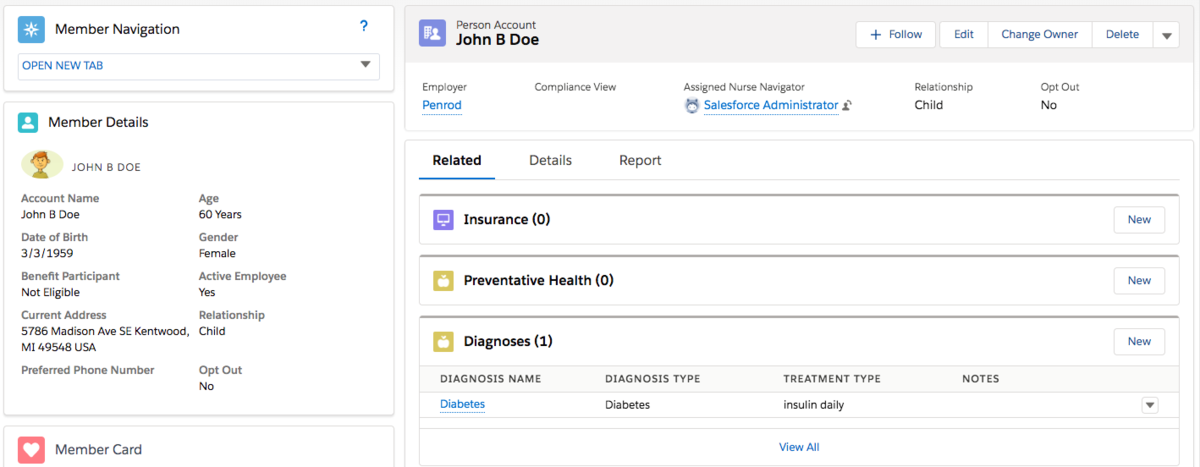
Accelerate New Patient — and Provider — Acquisition with Lead Generation Capabilities
Salesforce’s CRM was designed to help organizations manage all of their sales leads. Health Cloud integrates seamlessly with your CRM, allowing you to accelerate new patient acquisitions, as well as offer new healthcare services to existing patients.
How does it work? Using Health Cloud, your CRM gains secure access to your patient and provider data, analyzes this data, and guides and informs your strategies for attracting new patients. You can also automate this healthcare data by providing personalized, one-on-one interactions with prospective patients to show them that your organization is best positioned to understand and meet their unique healthcare needs. Beyond patients, Health Cloud can even be used as a recruitment tool for adding physicians and medical staff to the team.
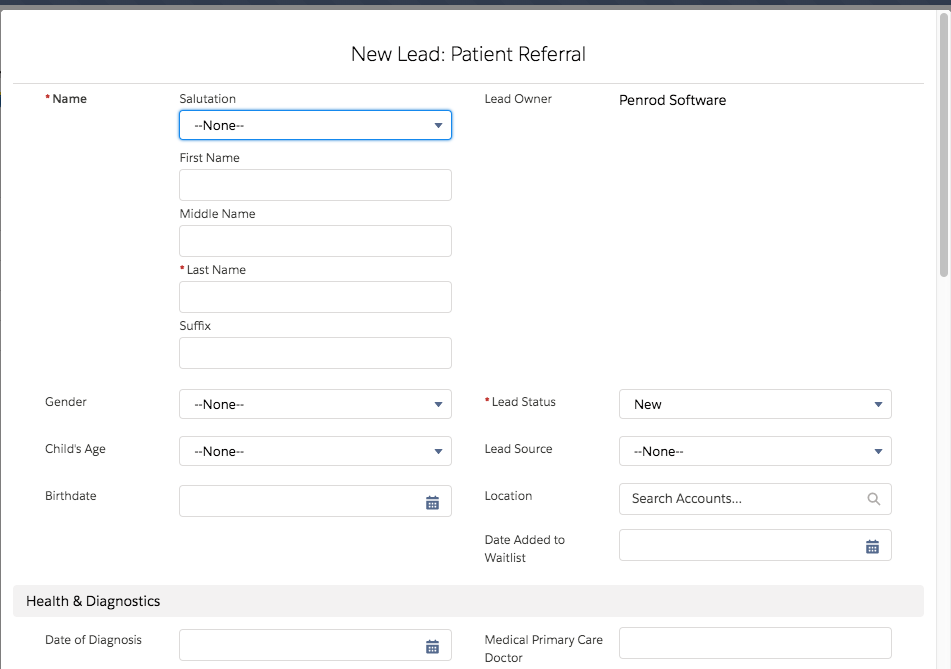

Improve Patient Engagement with Relationship-Building Capabilities
Health Cloud leverages the relationship-building capabilities of Salesforce CRM so providers can offer patients personalized communication when they need it. Providers can view complete patient profiles and extended care networks, as well as logs of one-on-one email communication between physician and patient. Instead of getting spammed, patients will hear from you when it’s appropriate and the communications will provide relevant, timely information. Providers and staff can also manage patient assessments and patient surveys within Health Cloud. This valuable tool can help inform the timing, frequency, and content of future patient communications.
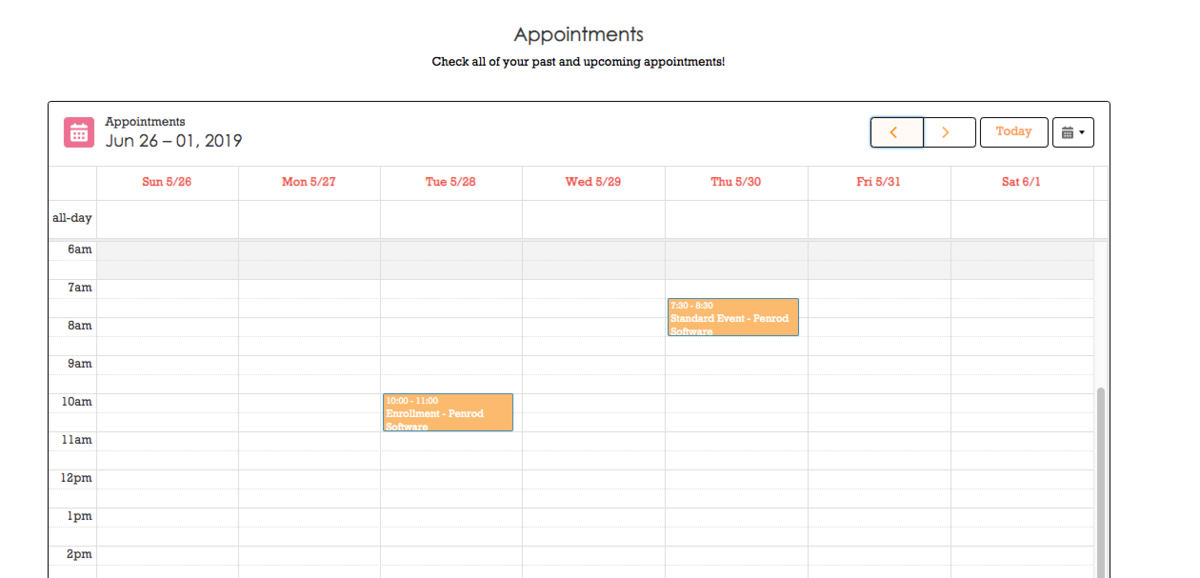
Improve Patient Satisfaction and Loyalty
Patients today have more healthcare options than ever before. That’s why it’s important to go above and beyond to ensure not only patient satisfaction, but patient loyalty. Health Cloud makes it easy by optimizing the patient experience. It aggregates all relevant patient data, including medical records and benefits, so customer care providers and staff can instantly pull up relevant data on one screen, so patients don’t have to wait. Physicians and other medical staff can easily access and utilize patient data, including past appointments and medication history, so they are prepared to address patient questions.

Health Cloud also offers expanded engagement with EHR integration. This allows patients the convenience of messaging providers, ordering prescriptions, and scheduling appointments online. Not only does this offer patients greater access to their healthcare, it helps them stay more engaged, which is of benefit to physicians and their teams.
Generate Actionable Insights Through Data Reporting and Analysis
It’s an undeniable fact: Data is power. That’s why one of Salesforce Health Cloud’s greatest strengths is its data analysis capabilities that drive intelligent, real-time decision-making. It assists with automating healthcare data by collecting and analyzing data from patients, providers, and payers. This way, providers are equipped to know how to deliver the most appropriate care at the right time and place.
Not only can you easily aggregate data, but you can also create user-friendly charts and graphs for visual reporting. This can be very helpful for providers and clinics that are part of a larger healthcare system, by allowing you to easily share high-level information on new trends and key metrics.
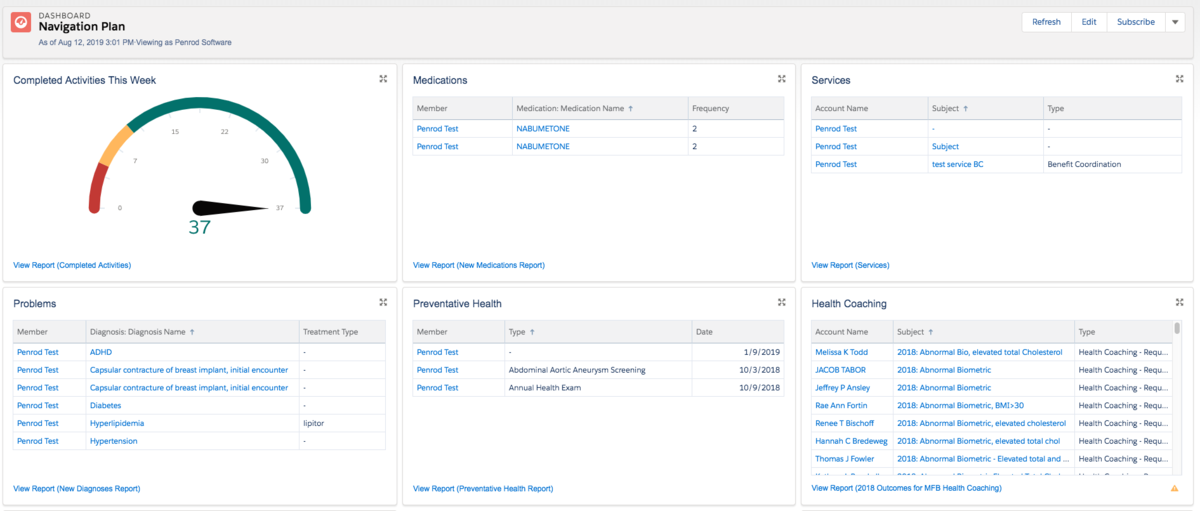
Penrod’s Final Take
No matter if you’re an independent physician, a specialty clinic, or part of a larger healthcare system, Health Cloud is a wise investment. With the platform, it’s easy for providers to document care decisions, ensuring vital information is communicated to the patient and all other providers involved in the patient’s care. By connecting to the patient’s EHR, it can help increase patient engagement and loyalty. And with its streamlined platform, customizable dashboards, and overall ease of use, it’s also a great tool for the support staff that surrounds and supports patients.





